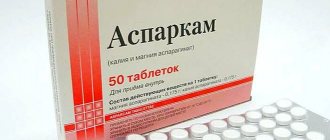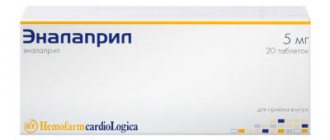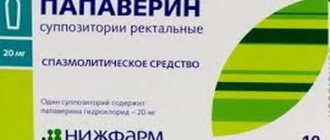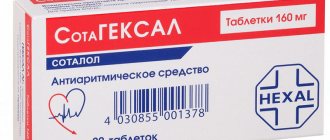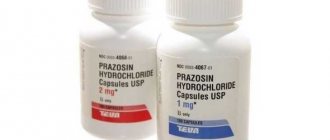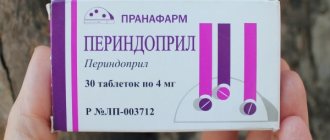According to recent studies, scientists have found that more than 35% of middle-aged people over thirty suffer from changes in blood pressure. Among the older generation, this problem is more common, and up to 67% of people over fifty years of age complain about it. High blood pressure not only causes discomfort to people and affects their ability to work, it is also dangerous because it can have an irreversible effect on many vital internal organs, such as the heart, brain, kidneys, eyes and blood vessels. Doctors recommend taking Renitec tablets for high blood pressure to avoid negative consequences.
If hypertension is not treated promptly, it will cause serious consequences:
- impaired coordination of movements;
- weakness in the limbs;
- decreased vision;
- deterioration of memory and intelligence;
- and in advanced cases, a stroke may occur.
Compound
The main component of the drug "Renitek" is enalapril. It is a substance that belongs to the group of angiotensin-converting enzyme inhibitors, or ACE for short.
The principle of operation of this substance is that it inhibits active AP enzymes, due to which a further systemic decrease in blood pressure occurs. In addition, this substance has the ability to inhibit pathological processes, such as hypertrophy of the walls of the heart muscle. It also restores the heart chambers after pathological expansion and stabilizes the basic functions of the heart.
Release form
The drug is produced in tablets of 5, 10, 20 mg, packaged in 7 pieces per blister. In a cardboard box there are 1, 2 or 4 tablets along with a recommendation. Also, “Renitek” is placed in 100 pieces in glass jars (dark). Reniteka tablets of 10 or 20 mg are packaged in such containers. Store the drug for 2.5 years in a dry place inaccessible to children. “Renitec” 5 mg tablets are white, triangular, convex on both sides. They have an engraving on one side and a line on the reverse. Anti-pressure tablets of 10 mg are triangular, pink, with inclusions visible on the crack. They have the same engraving and score as the 5 mg tablets. “Renitek” with a multiplicity of 20 mg is light pink with yellowness.
Pills
What is the difference between “Renitek” and “Co-Renitek”?
"Co-Renitek" has a similar effect to "Renitek" and is a combined antihypertensive drug, however, "Co-Renitek" has a much more effective effect on the body. This is justified by the fact that in addition to the main active component enalapril, containing 20 mg, it contains 12.5 mg of the diuretic hydrochlorothiazide. Thanks to its combined effect, which combines a diuretic and vasodilating effect, it is able to cope much better with high blood pressure.
Unlike the usual "Renitek", this type of drug is prescribed only for severe forms of vascular and heart disease, in order to minimize the load on the internal organs and the circulatory system.
Drug review
Release form and active ingredients
"Renitek" is produced in the form of tablets with different dosages of the active substance. Standard dosages are 5, 10 and 20 mg.
One of the most commonly used drugs for the treatment of persistently high blood pressure is Renitek.
The main active ingredient is enalapril maleate:
- When the substance enters the body, it is converted into an effective ACE inhibitor, enalaprilat.
- Under its influence, blood pressure decreases.
- There is also a decrease in vascular resistance.
- In some patients, cardiac output increases.
- In parallel, under the influence of enalaprilat, the condition of the muscle tissue of the left ventricle improves, and ventricular arrhythmia decreases.
- The effect occurs 1–3 hours after the patient drinks Renitec. The duration of the effect is about a day.
Along with the usual “Renitec”, doctors can prescribe “Co-Renitec” blood pressure tablets.
This is a combined drug, the effect of which is ensured by the synergistic action of two main components:
- enalapril maleate, which lowers blood pressure;
- hydrochlorothiazide (diuretic), which potentiates the hypotensive effect.
Along with the main components, both drugs also contain excipients, which include lactose (aqueous/anhydrous), talc, starch, dyes, etc.
For what diseases is Rentiek prescribed?
The main indications for prescribing and taking Renitek are as follows: arterial hypertension
"Renitek" is used in therapy:
- hypertension (both essential and renovascular) as a monotherapy;
- dysfunction of the heart muscle.
As a prophylactic drug, Renitek is used to prevent the development of heart failure, left ventricular dysfunction (both pronounced and asymptomatic), coronary artery disease, angina pectoris and heart attack.
At the same time, regular use of Renitek, according to the instructions of a specialist, can increase patient survival, reduce the risk of exacerbations and reduce the frequency of hospitalizations.
If the patient requires combination therapy to effectively eliminate the symptoms of hypertension, then Co-Renitek blood pressure tablets are more often prescribed, containing not only antihypertensive drugs, but also diuretics.
Instructions for use
This drug is prescribed exclusively to people with arterial hypertension as an addition to the general therapeutic course.
The initial dosage is 5-10 mg once a day. Depending on the physiological characteristics of the patient’s body, the dose changes at the discretion of the attending physician. For more optimal results, doctors prescribe 20 mg per day in one dose for ten days. If Renitek is taken in combination with a diuretic or any other antihypertensive drug, its dosage should be minimal.
If Renitek is included in the course of treatment of heart diseases, the initial dose should not exceed 2.5 mg per day. If the patient’s body has a positive reaction to the drug and its effect, the doctor can gradually increase the dosage at his discretion, but it should not exceed 40 mg for one day.
Blood pressure medicine Renitec
A popular medicine for persistently high blood pressure is Renitec.
It allows not only to normalize blood pressure, but also helps to cope with various problems of heart failure, improving myocardial function. "Renitek" belongs to the group of ACE inhibitors, and as the instructions for use describe, it is advisable to use it at an "upper" pressure of 140 mm Hg. Art. and “lower” - from 90 mm Hg. Art.
The dosage and duration of treatment for high blood pressure with Renitecom are determined by a cardiologist individually for each patient.
Composition and properties
The pharmaceutical drug, produced in the form of tablets for oral administration, contains the active component - enalapril and such excipients as:
- corn starch;
- lactose monohydrate;
- sodium bicarbonate;
- food emulsifier E572.
The main ingredient, enalapril, classifies Renitek as an angiotensin-converting enzyme inhibitor. By inhibiting ACE activity, the level of systemic blood pressure decreases.
But, in addition, the drug suppresses the processes of pathological hypertrophy of the walls of the heart muscle, reduces peripheral arterial resistance with an increase in cardiac output, and increases renal blood flow without changing the filtration rate.
The antihypertensive effect usually manifests itself within 1 hour, with complete stabilization of blood pressure readings occurring 4-6 hours after the dose of the drug is taken.
Indications
The drug can be prescribed to people with cardiac ischemia.
Renitek tablets are indicated for use in arterial and renovascular hypertension, the development of which was caused by pathological changes in the renal arteries, ischemia of the renal tissue and activation of angiotensin 2 synthesis.
In addition, the drug is prescribed to patients who have been diagnosed with heart failure of any stage and coronary heart disease.
"Renitek" is an excellent remedy not only for treatment, but also for the prevention of myocardial damage caused by insufficient blood supply.
Instructions for use
To treat high blood pressure, Renitec should be taken orally, regardless of meals, 10-20 mg once a day. With a slight increase in blood pressure, it is recommended to start taking the medication with 10 mg/24 hours.
If the pressure values are high, then treatment begins immediately with 20 mg once a day. It is worth understanding that these are general recommendations; the dosage regimen will be described in more detail by the attending physician.
But in any case, the maximum daily dose should not exceed 40 mg/day.
Contraindications
"Renitek" cannot be used in the fight against arterial hypertension in the presence of the following pathological conditions:
The drug is contraindicated for patients with porphyria.
- angioedema of various etiologies;
- individual intolerance to any component of the drug;
- narrowing of the renal arteries;
- leukopenia, porphyria;
- severe impairment of kidney function;
- anemia;
- stenosis of the aortic and mitral valve.
In addition, the medication should not be used by persons under 18 years of age, as well as by pregnant women, due to the ability of Renitek to provoke fetal malformations.
It is not recommended for nursing mothers to reduce high blood pressure with the medication in question, since even a small amount of enalapril in breast milk can cause kidney and cardiovascular pathologies in the child.
Therefore, before starting treatment for hypertension with Renitec tablets, it is important to make sure that there are no contraindications to their use.
Adverse reactions
Despite the good tolerability of the antihypertensive drug "Renitek", occasionally, while taking it, side symptoms may develop such as:
While taking the drug, patients may develop depression.
- myocardial infarction;
- low pressure;
- painful chest discomfort;
- disturbances in the rhythm of myocardial contraction;
- Raynaud's syndrome;
- worsening sleep, depression, confusion;
- dizziness, excessive nervous excitability, anxiety, paresthesia;
- inflammation of the mucous membrane of the pancreas, oral cavity, liver;
- lack of appetite;
- urge to vomit;
- dry mouth;
- yellowing of the skin;
- tinnitus, changes in taste preferences, deterioration of visual function;
- drop in blood sugar levels;
- skin rash;
- increased sweating.
Overdose
Exceeding the doses recommended by the doctor entails a rapid drop in blood pressure and impaired consciousness.
In case of overdose, the patient must urgently stop taking Renitek and consult a doctor.
Treatment is carried out in a hospital setting, where the victim is injected with saline and angiotensin 2. If necessary, hardware blood purification is used.
Drug analogues
The drug Enap has similar properties, which allows it to replace the prescribed medication.
To replace Renitek, choose any of the existing analogues:
- "Envipril";
- "Vazolapril";
- "Bagopril";
- "Enarenal";
- "Co-Renitek";
- "Berlipril";
- "Ednit";
- "Invoril";
- "Enam";
- "Envas";
- "Enap".
special instructions
Patients over 65 years of age should be under close medical supervision while using Renitek.
Absolutely everyone, without exception, needs to regularly monitor blood pressure levels before starting to treat arterial hypertension, as well as during therapy with the medication in question. During the therapeutic course, it is important to be careful when driving.
Source: https://VseDavlenie.ru/lekarstva/ingibitory/renitek-ot-davleniya.html
Overdose
Uncontrolled use of Renitek, without the recommendation of a physician, rarely causes heart rhythm disturbances. Common signs of an overdose of this drug are a sharp decrease in blood pressure, which is accompanied by coughing and anxiety.
In rare cases, loss of consciousness and attacks of suffocation are observed. Based on the physiological characteristics of the patient’s body, sometimes there is either an increase in heart rate or, conversely, a slowdown in heart rate. Rarely, an overdose of Renitem leads to acute renal failure.
Side effects
The drug is most often tolerated calmly.
Sometimes the following effects may occur:
- Gastrointestinal tract: constipation, jaundice, hepatocellular or cholestatic form of hepatitis, intestinal obstruction, liver failure, stomatitis, dyspeptic conditions, anorexia;
- CVS: heart attack and stroke, abnormal heart rate, pain in the chest, angina pectoris, Raynaud's syndrome;
- respiratory system: hoarseness, pulmonary infiltrates, shortness of breath, severe bronchospasms;
- CNS: headache, causeless anxiety, nervousness, depressive disorders;
- dermatology: erythema, profuse sweating, urticaria, toxic epidermal necrolysis;
- other: deterioration in vision clarity, red spots on the skin, erectile dysfunction, ringing in the ears, glossitis.
Side effects may include constipation.
Contraindications and side effects
The main contraindications for which it is prohibited to take this drug:
- In case of individual intolerance or allergy to a component included in Renitek.
- Not suitable for pregnant women or breastfeeding women.
- Prohibited for people with severe kidney impairment.
- In the presence of severe anemia.
- For stenosis on the arterial or mitral heart valve.
- Children under six years of age.
Caution regarding use especially concerns women during pregnancy, since clinical studies have shown that taking Renitek during this period can cause pathological development of the baby. Moreover, it is prohibited to take it regardless of how far into pregnancy the woman is; the drug will in any case have a negative effect and lead to the appearance of pathology. The same warning applies to the period of breastfeeding.
The active components of the drug will penetrate into mother's milk in small doses, but this amount will be sufficient for the newborn organism, especially since daily uncontrolled consumption of such milk will cause not only pathology of the internal organs, but also symptoms of drug overdose.
In addition to its positive qualities, Renitek also has side effects that occur in rare cases:
- Dry cough, shortness of breath.
- Migraines, lethargy, dizziness.
- Blurred vision.
- Infectious diseases of the bronchi and lungs.
- Muscle cramps and spasms.
- Depression and insomnia, failure of the daily routine.
- Rapid heartbeat - tachycardia.
- Severe form of allergy, in rare cases anaphylactic shock.
Contraindications when using Renitec
Tablets are prohibited for use under the following conditions and pathologies:
- hereditary or idiopathic type of angioedema associated with the use of ACE inhibitors;
- lactose intolerance, HGM syndrome;
- combination with Aliskiren and aliskiren-containing drugs in diabetics and patients with renal failure;
- minor age;
- lactation and pregnancy;
- hypersensitivity to the components included in the tablets.
You should not take the drug during pregnancy.
The medication is used with caution when:
- recovery after kidney transplant;
- aortic or mitral stenosis;
- cardiomyopathy;
- cardiac ischemia;
- liver and kidney failure;
- pathology accompanied by a decrease in the amount of circulating blood;
- belonging to the Negroid race;
- over 65 years of age;
- diabetes mellitus
Use this medication with caution if you have diabetes.
special instructions
When taking Renitek, a rapid and effective decrease in blood pressure occurs, regardless of what position the patient is in; the drug acts equally in both vertical and horizontal positions of the patient’s body. While taking this drug, you should not drink alcohol; it enhances the effect of the drug, which can lead to cardiac arrest.
Reviews and analogues
Patients respond differently to the medicine. Some are satisfied with the result and note that this drug helped stabilize systolic and diastolic blood pressure.
Patients are unhappy because they experienced dizziness and headaches during treatment. Approximately 2-3% of hypertensive patients complained that Renitek caused dyspeptic disorders and drowsiness.
The medicine has many cheap and domestic analogues. There are also more expensive substitutes. According to cardiologists, the best analogues are:
- Captopril (50-80 rubles).
- Kozaar (250-300 rubles).
- Acridilol (280-350 rubles).
- Lokren (1000-1200 rubles).
- Valsartan (380-450 rubles).
- Teveten Plus (1200-1400 rubles).
- Nortivan (290-360 rubles).
- Kapoten (200-230 rubles).
- Nebilet (950-1100 rubles).
Interaction with other drugs
If the drug is planned to be taken in combination with other medications, it is necessary to reduce the dose of Renitek depending on the course of therapy. For older people, the doctor always selects the required dose based on the patient’s kidney function. It is prohibited to combine the use of Renitek and drugs containing lithium. Also, the use of the drug is prohibited for those people who suffer from lactose intolerance, since it is present in its composition and, therefore, can cause an allergic reaction.
Indications
The list of diseases and pathologies for which Renitec is indicated includes:
- different forms of hypertension (essential, renovascular) at any stage;
- heart failure;
- disorder of left ventricular function, which occurs without pronounced symptoms;
- unstable angina.
The drug is prescribed both for therapeutic purposes and to reduce the likelihood of hospitalization due to deterioration of the condition, prevention of serious complications (including necrosis of the heart muscle), and improvement of the quality and life expectancy of patients.
Important information: Blood pressure medicine Vamloset: instructions for use, reviews
